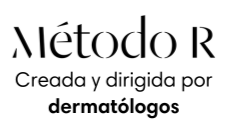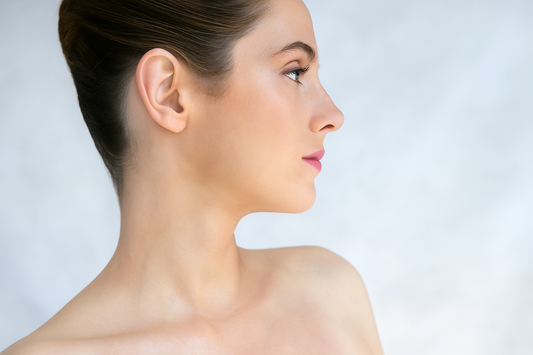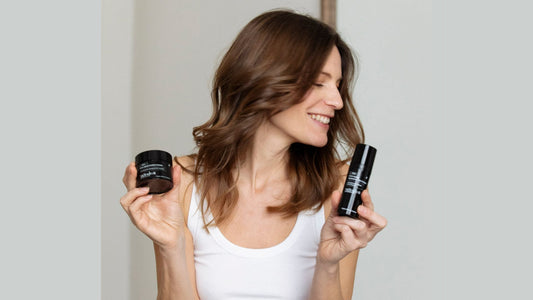What does vitamin C do on the skin?
Vitamin C is an antioxidant, the most studied and the one with the largest number of scientific studies that support it. Why do I like vitamin C so much? Its benefits are many:
- It is the most effective to brighten the skin
- Prevents the synthesis of melanin, preventing spots
- Unifies the tone, lightening existing stains
- Neutralizes free radicals
- Our skin needs vitamin C to produce collagen
- Also increases elastin and hyaluronic acid levels
- Improves elasticity
- Improves barrier function
- Helps prevent skin cancer
- Numerous scientific studies support its effectiveness
What types of vitamin C are there? Which one is the best?
There are many options for vitamin C products and the choice can be a little overwhelming. In my opinion, the most effective are Tetrahexylecyl Ascorbate or 3-0-Ethyl Ascorbic Acid. Until recently, pure ascorbic acid did not have any derivatives that could overshadow it. Luckily, today, these derivatives have widely demonstrated effectiveness and produce less irritation and are more stable. Because an oxidized antioxidant is of no use to us!
Furthermore, vitamin C is enhanced if it is accompanied by other antioxidants such as vitamin E, niacinamide and ferulic acid. Ideally, your cream or serum combines different antioxidants to improve results.
Another important aspect that we must take into account is the concentration of vitamin C included in the product. Scientific studies are very specific and determine that it must be between 8 and 15% to produce beneficial effects on your skin.
These concentrations are like this for free vitamin C. In encapsulated or liposome vitamin C, the effectiveness can be multiplied considerably, so that with much less concentration the benefits of prevention and improvement of the signs of aging can be achieved.
So if your cream includes liposome vitamin C combined with niacinamide, ferulic acid and vitamin E, it is a Ferrari of antioxidants.




